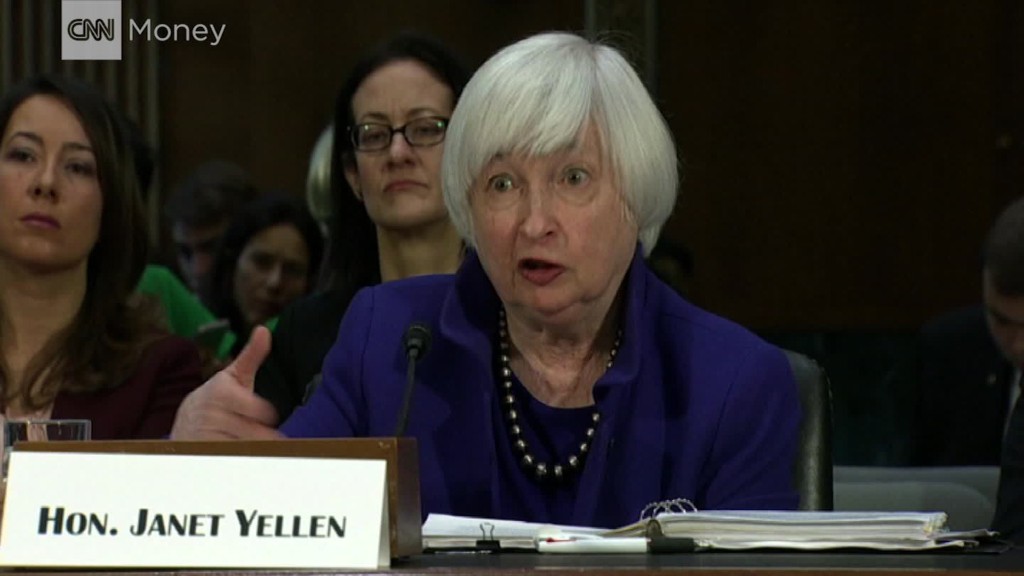
A top House GOP lawmaker is pressing ahead with his plans to roll back the 2010 Dodd-Frank financial regulatory reform, scheduling a markup of his bill next week, two people familiar with the matter told CNNMoney Monday.
Earlier this month, Sarah Rozier, a spokeswoman for House Financial Services Chairman Jeb Hensarling said the Texas Republican lawmaker had set a deadline of unveiling an updated version of his bill, dubbed the Financial Choice Act, "in the next few weeks."
The committee is holding a hearing on the bill this Wednesday. Rozier declined to provide further comment on the committee's plans.
Related: House GOP bill would give Trump greater power over Wall Street
The latest version of Hensarling's bill would give the president authority to fire the heads of the Consumer Financial Protection Bureau, a consumer watchdog agency, and the Federal Housing Finance Agency, which oversees mortgage giants Fannie Mae and Freddie Mac, at any time and for any -- or no -- reason.
Hensarling's bill would also give Congress purview over the CFPB's budget, meaning lawmakers could defund the agency entirely.
The GOP proposal would also bar the Federal Deposit Insurance Corp. from overseeing the so-called living will process, which requires banks to write up plans on how they would safely be unwound in the event of a collapse. The FDIC and the Fed are the two regulators responsible for overseeing this requirement under the 2010 law.
The GOP plan would make it easier for Wall Street to overturn regulations. And it would force policymakers to study the benefits of regulations, including Dodd-Frank, versus their costs.
Hensarling's bill would allow banks to run their own stress tests instead of putting the responsibility in the hands of regulators, a requirement that was instituted under Dodd-Frank. It would also revise how often banks would have to undergo a separate stress test by regulators from once every year to two.
Related: Trump signs orders that take aim at Dodd-Frank
Trump has remained steadfast in maintaining his pledge to do a "major elimination of the horrendous" Dodd-Frank reform law. The White House could reshape bank rules through legislation or by appointing top officials who are likely to slash the regulations.
On Friday, the president directed Treasury Secretary Steven Mnuchin to review regulators' authority to unwind a bank on the brink of failure and to label nonbank firms -- insurance companies, private equity firms and hedge-funds -- as risky institutions.
Mnuchin and his Treasury staff are already fulfilling a prior request by the president to review regulations and find ways to reduce the burdens on businesses. That review is due in June. His staff has also been working on finalizing a tax policy plan that Mnuchin said would be completed "very soon."
A top priority for the Trump administration has been to drive economic growth through tax reform and loosening regulations.
Last week, Mnuchin endorsed Hensarling's latest plan to replace and repeal the 2010 reform law. "We are supportive of him bringing forth this legislation and looking forward to working with him," said the former Goldman Sachs banker.
Even with an updated version of the House bill, the Senate will want to put its own footprint on any potential changes to the 2010 regulatory reform law.
Mike Crapo, the ranking member of the Senate Banking Committee committee, has already set the tone of seeking to find areas of common ground with Democrats.


